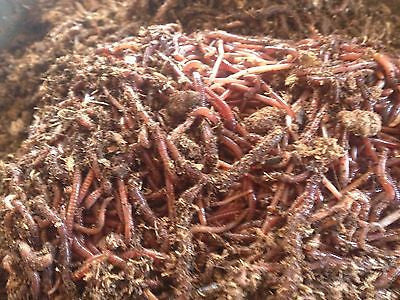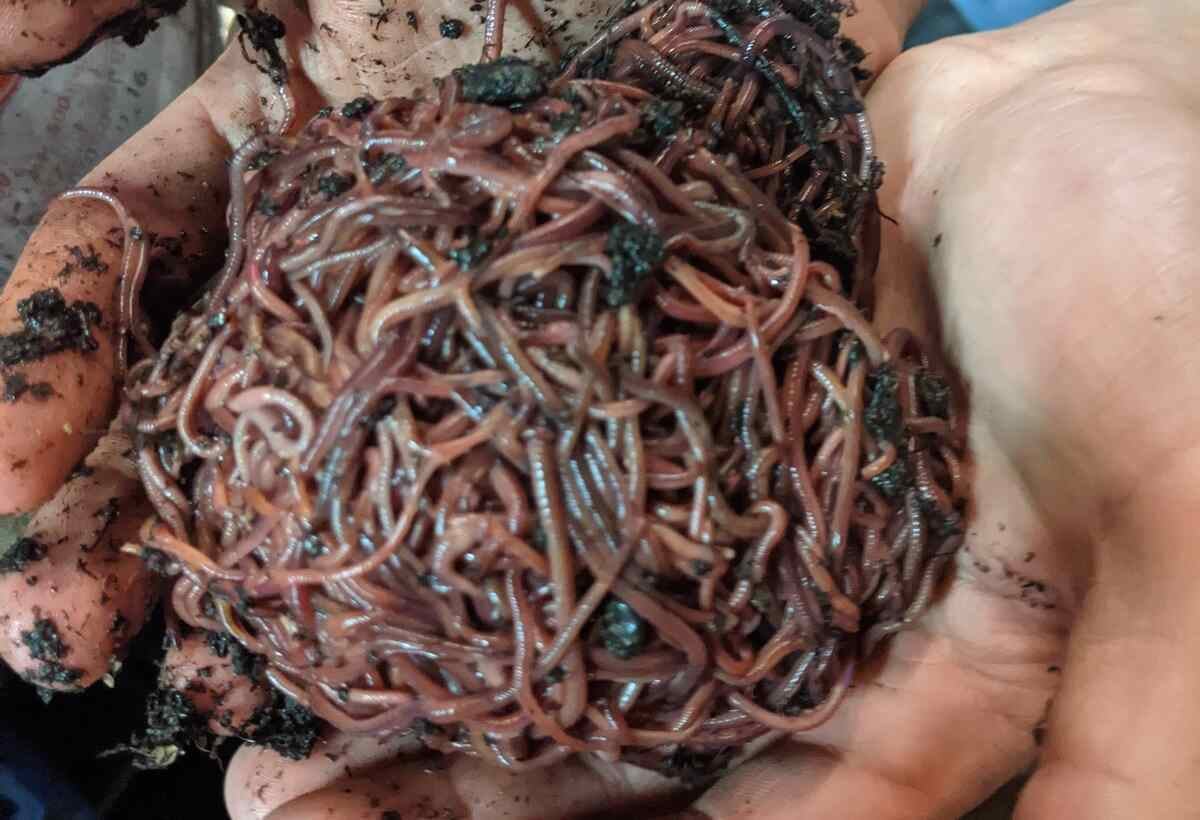Red wigglers: Improve your compost game
Red wigglers: Improve your compost game
Blog Article
Top Advantages of Utilizing Red Wigglers for Vermiculture
The use of red wigglers, or Eisenia fetida, in vermiculture provides numerous engaging benefits that expand past mere composting. These microorganisms not only boost soil fertility and structure yet additionally assist in a more efficient decay process while actively getting involved in waste decrease. Their visibility dramatically improves microbial task within the soil, producing a thriving ecological community helpful to plant growth. As we explore these advantages better, it ends up being noticeable that the ramifications of including red wigglers right into farming methods are both profound and far-reaching.

Improved Soil Fertility
Improved dirt fertility is an important element of sustainable agriculture, and red wigglers play an essential duty in this process. As a species of earthworm, red wigglers (Eisenia fetida) are particularly reliable in improving soil wellness with their natural behaviors and organic features. They eat organic waste, simplifying right into nutrient-rich spreadings that considerably improve dirt structure and nutrient availability.
The spreadings generated by red wigglers are abundant in crucial nutrients, including nitrogen, phosphorus, and potassium. In addition, the existence of red wigglers in the soil enhances microbial task, additional contributing to vitamins and mineral cycling and soil oygenation.
Integrating red wigglers into agricultural practices not just boosts dirt fertility but likewise lowers the requirement for artificial fertilizers, aligning with organic farming principles. Using red wigglers in vermiculture stands for a sustainable technique to soil monitoring, ultimately sustaining the lasting feasibility of agricultural systems.
Fast Decay Refine
The quick decomposition process assisted in by red wigglers is an impressive sensation that significantly profits both composting and soil health. These earthworms, understood clinically as Eisenia fetida, play an essential duty in breaking down organic issue effectively. By eating kitchen scraps, plant particles, and other organic waste, red wigglers transform these products right into nutrient-rich spreadings at a sped up rate.
The procedure starts as the worms consume raw material, where it is after that absorbed in their specialized gizzards - red wigglers. This failure not just lowers the quantity of waste yet additionally boosts the availability of crucial nutrients. As red wigglers secrete castings, they launch a result that is including beneficial bacteria, which even more aids in decomposition and enriches the compost
(red wigglers for composting)Additionally, their burrowing tasks freshen the garden compost, advertising optimum microbial activity. This vibrant setting increases decomposition, resulting in a much faster turn over of organic material into functional garden compost. Gardeners and farmers can enjoy quicker access to premium garden compost, therefore boosting their ability to support plant growth and overall soil vitality. The performance of red wigglers in the decomposition procedure is thus essential for lasting composting practices.
Better Dirt Structure

Additionally, the castings produced by red wigglers are abundant in beneficial microbes and nutrients, which promote a healthy and balanced dirt ecosystem. These castings enhance the soil's dampness retention ability, reducing the need for frequent watering. As the organic matter is damaged down into better particles, it raises the soil's accumulated stability, stopping erosion and compaction.
The visibility of red wigglers likewise fosters a varied microbial community, which plays a vital role in nutrition cycling. This variety further boosts soil fertility and strength, allowing it to sustain a wide variety of plant life.

Decrease of Waste
Vermiculture using red wigglers plays a critical role in the reduction of waste, particularly natural waste that would or else finish up in garbage dumps. The procedure of vermicomposting efficiently changes various sorts of natural materials, such as food scraps, lawn waste, and paper items, into nutrient-rich vermicast. This not just diverts waste from garbage dumps but likewise decreases the ecological influence connected with waste decomposition in these sites, which often creates harmful greenhouse gases like methane.
By utilizing red wigglers, people and organizations can handle their organic waste more sustainably. These worms have an amazing capability to consume significant quantities of natural product, converting it into important compost that can be utilized to enhance soil. This process not just reduces the quantity of waste however likewise prolongs the lifespan of land fills, eventually contributing to waste management services.
Moreover, taking on vermiculture practices encourages a society of recycling and sustainability. As even more individuals acknowledge the benefits of composting with red wigglers, the collective influence on waste reduction comes to be significantly substantial. In recap, using red wigglers for vermiculture offers an effective strategy for reducing organic waste while boosting environmental stewardship.
Increased Microbial Task
While participating in vermicomposting, the visibility of red wigglers substantially improves microbial task within the composting system. These earthworms produce a helpful environment for useful microorganisms by freshening the garden compost and breaking down organic material. As the worms eat food scraps and other natural waste, they excrete nutrient-rich spreadings, which function as a habitat and food resource for diverse microbial areas.
The enhanced microbial activity promotes the fast decomposition of natural matter, resulting in a lot more effective nutrient biking. This process not just accelerates garden compost maturation yet likewise enhances the total quality of the final item. Microbes, such as bacteria and fungi, grow in the worm-rich environment, resulting in a greater focus of important nutrients like nitrogen, phosphorus, and potassium in the garden compost.
In addition, the synergistic partnership between red wigglers and germs contributes to virus suppression and improves soil health and wellness. By cultivating a robust microbial populace, vermicomposting with red wigglers promotes biodiversity in the garden compost, inevitably leading to richer, red wiggler earthworms for sale much healthier soil for plant growth. Hence, the role of red wigglers in raising microbial activity is crucial for effective and sustainable vermiculture methods.
Verdict
In summary, the use of red wigglers in vermiculture offers various benefits, including improved dirt fertility, reliable decomposition of organic issue, and improved soil structure. Their one-of-a-kind burrowing behavior not only advertises far better water retention but also help in the decrease of waste, adding to sustainable waste administration methods. The increased microbial activity promoted by their castings sustains a thriving ecological community, inevitably leading to much healthier plants and more resistant farming systems. red wigglers.
Report this page